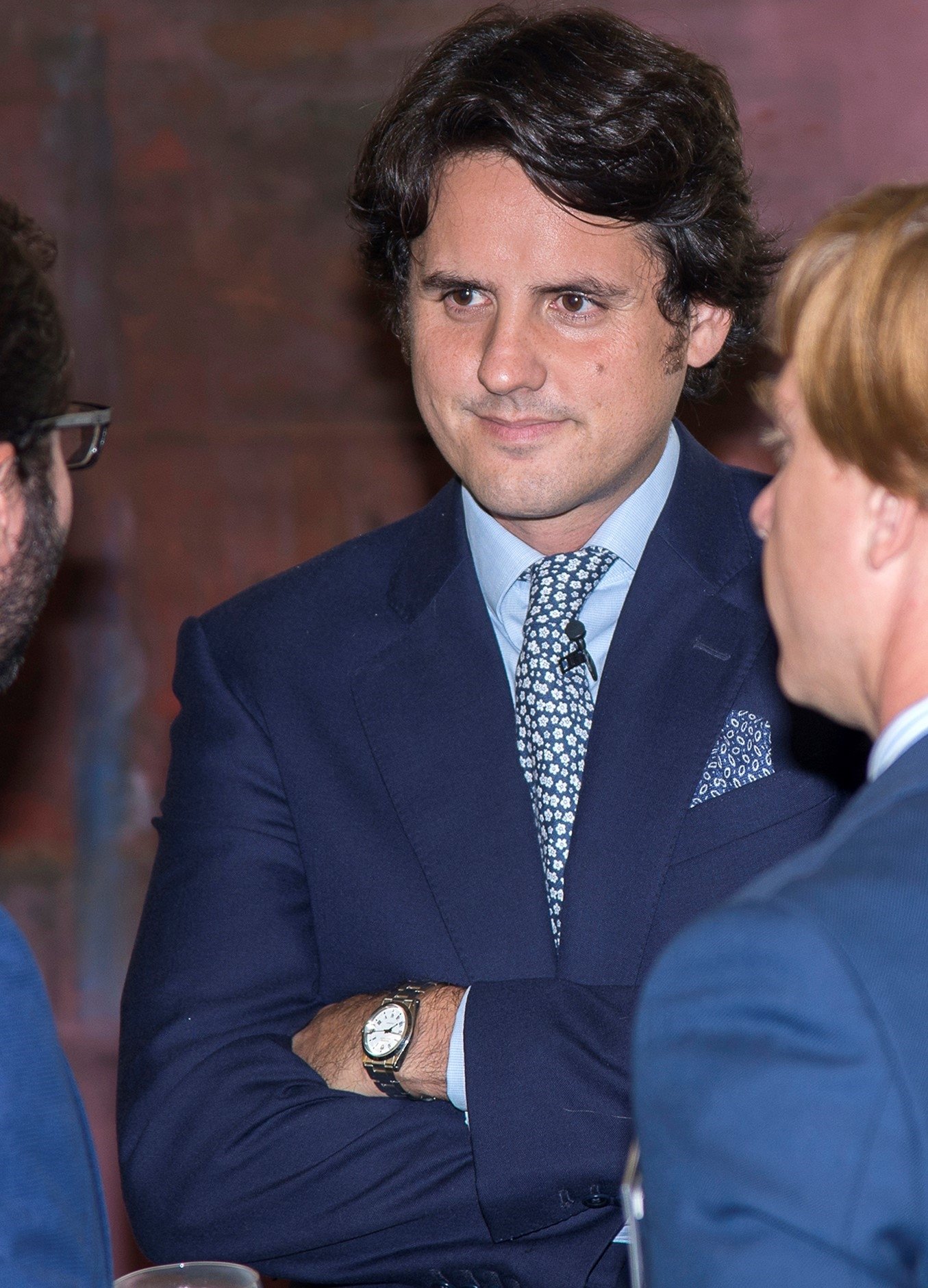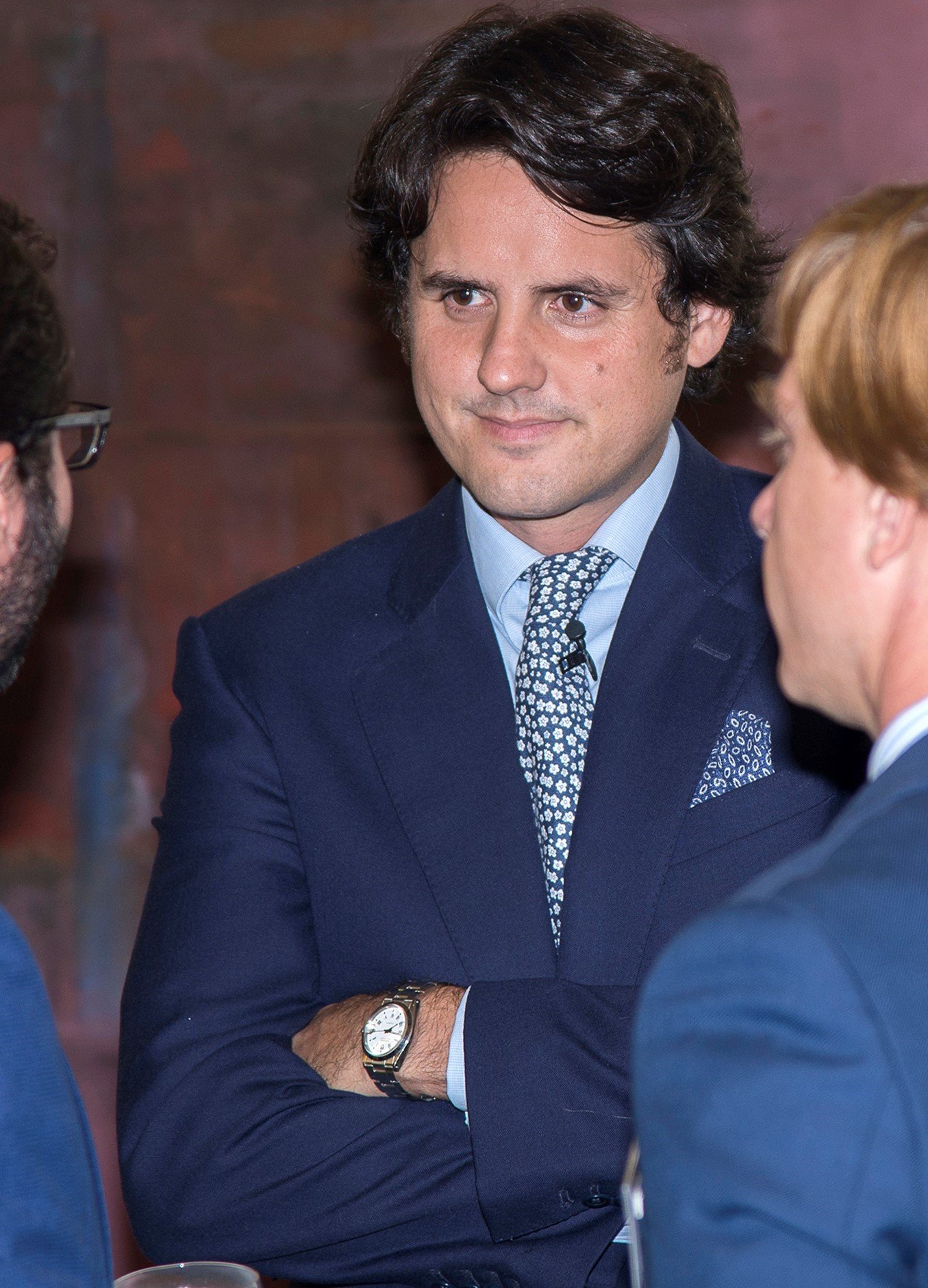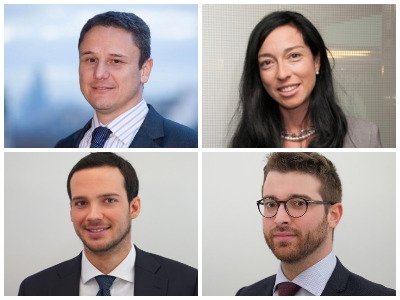Dealmaking as continuous learning

Our Young and Unstoppable for May is Bosco De Checa (pictured), a senior associate at Allen & Overy. This 30-something lawyer was on the verge of becoming a professional golfer but life, and the lawyer movies he watched with his father led him to “compete” as a Corporate specialist on the deal board. He admits that he particularly enjoys cross-border transactions; because of this, he chose this magic circle firm to develop his career. Now, seven years after joining A&O, this promising young star, who seems to be steadily making his way to partner, tells us how the top of the dealmaking stakes are forged
 Ice-breaker, and in a joking tone, what were your favourite childhood games? Were you more into Monopoly or Risk?
Ice-breaker, and in a joking tone, what were your favourite childhood games? Were you more into Monopoly or Risk?
The truth is that I played more “cinquillo” (Spanish card game), but I like both. Maybe when I was a child I played Monopoly more and at university, I played Risk. My friends were always allied against me.
When you decided to become a lawyer, why did you opt for Business Law, and specifically Corporate Law, or did the decision come later while you were on the field?
I never thought of it as a vocation because when I was young my passion was sport. During my time at university, I combined my law degree with top-level competitive sport to the point where I considered playing golf professionally. In the end, I chose law and now golf is my hobby. Going back to the question, my vocation probably comes from the lawyer films I used to watch with my father, I remember it with special fondness.
Regarding the decision to become a “Corporate” lawyer, it was not automatic either. During my first two years, I was lucky enough to enjoy a rotation system through four departments (Corporate, Banking, Competition and Tax) and although at that time I would have loved to go into Competition Law, in the end, I stayed with Corporate. I think the transactional component of my practice got me hooked.
What made you choose A&O as the firm to develop your future? Where do you see yourself in the next five years?
The opportunity arose seven years ago and I am delighted to have taken it. We have a fantastic team. The growth of the Corporate practice over the last five years has been impressive, both locally and globally. I hope I can continue to contribute my grain of sand so that in the coming years if the current situation allows it and clients continue to trust us, A&O’s M&A team will continue to be the benchmark practice in Spain that it is today.
You have been with A&O for seven years. During this time, who have been your mentors and what do you consider to be the most important thing you have learned from them?
I have been lucky enough to work with all the partners of the firm and many other colleagues. I would be lying if I didn’t say that I have learned different things from each of them: client care, hard work, striving for excellence – nothing you don’t already know. Possibly what I have learned most from them is the meaning of the word trust; for me, there is no project without a team and no team without trust. I have also learned to make mistakes; we all make them, but knowing how to recognise them and try to correct them is, for me, the key to success.
Is a good deal-maker born or made? What qualities are essential to be an effective negotiator? From your point of view, what requirements have the Covid-19 coronavirus pandemic added to this profile?
Area good deal-maker is definitely not born – you can have good skills, but you learn to like everything else. Experience is key, and the more negotiations you are involved in, the more you learn. The best negotiators I have had the opportunity to work with are those who understand the timing of the negotiation and understand their client’s interests and concerns. The party that is in a hurry or under pressure to close is always at a disadvantage. Experience has taught me that many points are gained by having a detailed knowledge of the business – the one who has that knowledge plays with an advantage. Finally, I believe that preparation is key.
Regarding the impact of Covid-19 on negotiations, I don’t think it has changed the dynamics much, although negotiations are slower, the parties think more carefully about their decisions. Anecdotally, one does miss the game of the negotiating room – video negotiations are not the same – but by now I think we are all used to it.
You advise on issues in different sectors such as Financial Institutions, Private Equity, Infrastructure, Energy and Media. In which transactions do you feel most comfortable or which issues motivate you the most?
Unlike in the Anglo-Saxon world where lawyers are very specialised, in Spain, we are more versatile. That said, perhaps in recent years, I have been more focused on advising financial institutions and infrastructure companies/funds.
I don’t think there is one subject or sector that motivates me the most, I would say that the challenge of the particular project or the people I am going to work with is what I appreciate the most. In fact, there is one client in the advertising sector that I have been working with all my professional career and whenever they call me, I am always excited about it.
The cross-border transactions you have been involved in, what have they taught you, what do you keep, and what do you think you still have to do in this respect?
The cross-border component is perhaps the transactional element that I enjoy most in my work and one of the main reasons why I chose a global firm like A&O. The cultural gap exists in every cross-border transaction and having the opportunity to help clients bridge it is a very enriching exercise. I love being part of a global firm and working with colleagues from other A&O offices. In one of the last transactions I have advised on, we have coordinated teams in more than eight jurisdictions from Spain, having to deal with the complexity of the local law in each of them. You never stop learning, and I hope to continue to have the opportunity to have that international exposure which, personally, I believe makes a better lawyer.
In an article you wrote at the end of last year, you predicted that 2021 would be a year of opportunity for M&A. Now that the first quarter has passed and with your firm leading, along with Garrigues, the ranking of transactions during this period, we assume that you continue to affirm this. From this perspective, what do you think the rest of the year will be like, and will the trend in terms of type and volume of transactions continue?
We are so well-positioned thanks to the confidence of our clients. As I said in that tribune, I think we have to continue to be prudent, and although the vaccination targets and market conditions seem to paint a horizon of opportunities for the rest of 2021, surely of a varied profile, we will all have to continue to learn to adapt to the different circumstances and needs that arise.
In terms of the market, as we have been observing over the last few months, all indications are that the energy and telecoms sectors, as well as banking, will be active. We also expect private equity houses to play a leading role. Finally, the capital markets seem to be picking up, in particular with the SPACs that are so fashionable nowadays.
Hopefully, this trend will continue, and we will be able to celebrate at the end of the year, bearing in mind the after-effects of this pandemic.
By Desiré Vidal Perea
To read the interview in full please download issue N.104 here.












